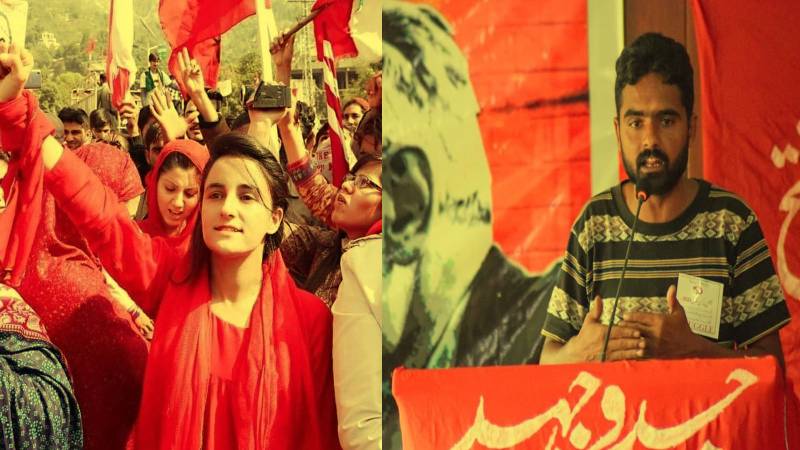
Two young activists in Azad Jammu Kashmir (AJK) have been charged with blasphemy, leading to a tense situation with significant political and social ramifications. Arslan Shani, the Deputy Chief Organizer of the Jammu Kashmir National Students Federation (JKNSF), is currently on the run, while Asma Batool, a fellow activist, is in police custody.
The accusations reportedly stem from their involvement in the People’s Rights Movement, which successfully fought for affordable electricity for AJK’s 4.5 million residents. This movement has been seen as a significant victory against the region’s economic and social issues.
The current charges against Shani and Batool are linked to a social media post by Shani, which expressed outrage over a recent gang rape and murder in Kolkata, India. The post, which included protest poetry against gender violence, was later shared by Batool. This poetry, which has been widely circulated in the region, has now been cited as the basis for the blasphemy charges.
In response to these charges, a joint statement from the JKNSF and Revolutionary Students Front (RSF) denounced the repression and warned of potential broader consequences if the campaign of intimidation continues. The statement criticized the state’s support of religious fundamentalist elements and called for an end to retaliatory actions against activists. It also expressed a commitment to protest across the country and internationally if the situation does not improve.
In a separate case, a district and sessions court in Karachi recently sentenced Ali Haider to life imprisonment for desecrating the Quran. Haider was apprehended in June 2021, and the court's decision reflects the stringent nature of Pakistan’s blasphemy laws, which impose severe penalties for offenses deemed disrespectful to religious texts and figures.
The recent developments highlight the ongoing tensions surrounding blasphemy laws in Pakistan and AJK, the challenges faced by activists advocating for social change, and the broader implications for freedom of expression and political dissent in the region.
Blasphemy laws in Pakistan, introduced during the military regime of Zia-ul-Haq in the 1980s, are controversial and have been used to suppress dissent and target marginalized groups. Critics argue that these laws are often exploited for political gain or personal vendettas, with accusations frequently leading to violent repercussions. Victims of blasphemy charges are often denied fair trials, and their lawyers face threats, with some even murdered.

